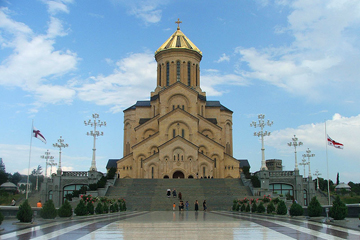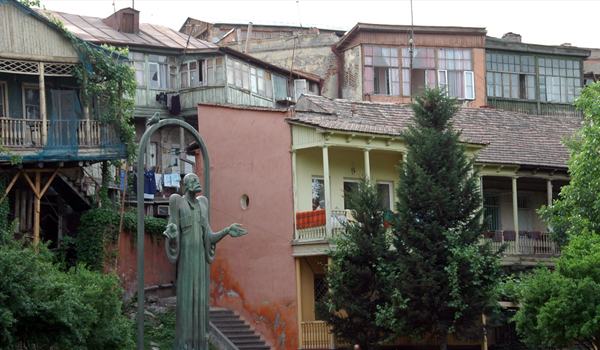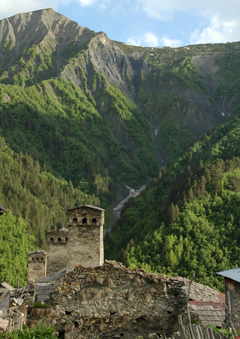At first glance, Georgia appears dark and dangerous. On our first day in the capital Tbilisi, we descended into a barely lit metro station. A sea of people dressed in black with long dark faces to match, took us in with curiosity as we boarded the train. Kids craned their necks around parents to get a peek at us.
“What have we gotten ourselves into?” we wondered.
Appearances couldn’t be more deceiving. Over a month later, we found it difficult to tear ourselves away.
Most of us had barely heard of the Republic of Georgia until the conflict with South Ossetia, Russia and Abkhazia erupted in August 2008. Georgia will again become safe for travelers long before the image of Russian tanks rolling through its towns dissolves.
Here are ten reasons why you should keep Georgia high on your travel wish list.



